For several years, schools in Arizona and nationwide have been analyzing student achievement, discipline data and demographics to develop equity plans to increase student and family engagement, reduce discipline disparities and close the achievement gap.
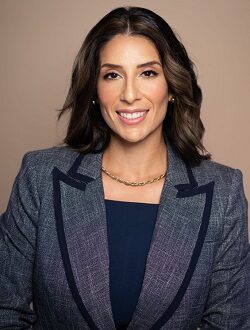 Stephanie Parra
Stephanie Parra
With input from their communities, they’ve put those plans into action and adjusted as needed along the way.
“When implemented effectively, equity plans can ensure that a system is making data-informed decisions that demonstrate the ability to produce opportunities and justice for the intended student demographic,” said Stephanie Parra, a Phoenix Union High School District Governing Board member and executive director of ALL in Education.
“Equity plans also provide students with safe spaces that support social and emotional wellness. Moreover, when students and families feel supported, valued, and respected by their school communities, educators can build trust and ultimately see growth in academic achievement for all students,” Parra said.
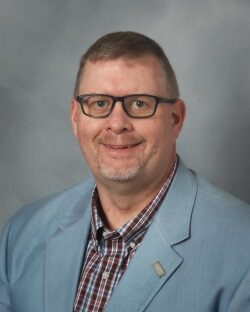 Steve Johnson
Steve Johnson
These equity plans are action plans to meet goals set by school district leadership and the governing board and developed in partnership with staff, students, families, and the community.
“Public schools are designed to serve the community in which they reside. The purpose is to create a shared set of values, to instill knowledge, skills, and abilities that prepare students to be productive and informed citizens,” said Steve Johnson, Florence Unified School District Governing Board Member.
“You cannot fulfill this purpose without the assistance and support of the community members you serve. The inclusion of such voices makes the likelihood that the equity work will be successful and sustainable,” said Johnson, who also serves as an Arizona School Boards Association County Director from Pinal County.
Business leaders support equity plans
School equity plans are critically important, because “our education system needs to improve most for students of color and students in poverty,” said Dr. Heather Carter, executive vice president of Greater Phoenix Leadership who leads the organization’s education and healthcare portfolio.
“The majority of Arizona third graders cannot pass standardized third grade reading tests, including 56% of Hispanic students, 60% of African American students, and 72% of Native American students,” said Dr. Carter, an education advocate who served in the Arizona Legislature for many years.
“These statistics are highly alarming and consistent with prior years, which point to a systemic inequity that has not been thoroughly and meaningfully addressed,” said Dr. Carter, who now leads equity presentations for schools and other organizations in the Phoenix area.
“Every child in Arizona should have access to a top-quality school that fits each student’s unique needs and interests,” Dr. Carter said.
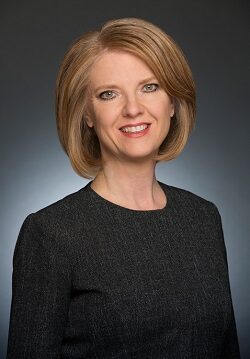 Dr. Heather Carter
Dr. Heather Carter
There are significant social factors that influence educational attainment, including social determinants existing outside of our schools and throughout our communities, which require comprehensive community engagement, Dr. Carter said.
“Keeping our communities informed about the inequities that exist within our education system is a critical component of developing a comprehensive stakeholder engagement process that considers a variety of ideas, opportunities and solutions,” Dr. Carter said.
“All children are capable of learning and succeeding, and it is our responsibility to ensure that they have the tools, resources and leadership to do so,” Dr. Carter said.
“The COVID-19 pandemic has significantly exacerbated the inequities existing within Arizona’s education system,” Dr. Carter said. “Equity matters, and Arizona’s business community recognizes that a long-term, sustainable education game plan must be created to address the future of education in Arizona.”
“Arizona’s business community accepts responsibility for convening leaders to develop a long-term and sustainable education game plan to address future needs in Arizona with regard to funding, accountability, access and innovation,” said Neil Giuliano, president and CEO of Greater Phoenix Leadership. “We welcome conversations with all parties sharing our commitment to the creation of a comprehensive education game plan.”
“By convening and collaborating with a variety of stakeholders, we will collectively review data and ask questions to better understand the good work that has been done to this point, and to collectively build the game plan that Arizona students need,” Dr. Carter said.
Jim Swanson, president and CEO of Kitchell Corporation agrees.
Students on a Phoenix Union High School District campus
“Equity in our funding formula for our students is crucial in building the Arizona we all want,” Swanson said. “The way we fund schools in Arizona puts a large burden of the cost on local communities.”
“Unfortunately, many of our poorest kids and minority populations live in communities that don’t have the tax base or the wealth to support additional local funding,” Swanson said.
“Investing in these kids by adding an ‘Equity Weight’ to the funding formula is perhaps the most important economic development tool we can use to create a robust and vibrant economy for ALL Arizonans,” Swanson said.
“A kid’s future should not be determined by the zip code they were born in. Students of color and those that live in poverty need additional resources to help move them out of the cycle of poverty,” Swanson said.
“We need to invest in small class sizes with great teachers (together with technology, counselors, social services, etc.) to make attainment a reachable goal for all kids,” Swanson said.
What school leaders say about equity plans
School districts leaders have found that focusing on equity improves academic achievement and school culture.
“Embedding equity in the district’s strategic plan is vital to each and every one of our students’ and schools’ success,” said Ann O’Brien, a Deer Valley Unified School District Governing Board member and president of Arizona School Boards Association’s Board of Directors.
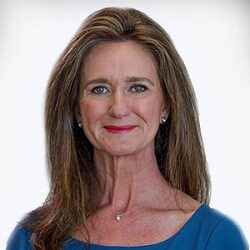 Ann O’Brien
Ann O’Brien
Each school’s equity plan within a district looks different because it is tailored to meet students’ needs to achieve those goals.
“The word ‘fair’ is often used in how we should treat students and staff. Unfortunately, fair often means everyone receives the same resources. Deer Valley USD students do not all need exactly the same resources. By incorporating equity in how we operate every day, academic achievement increases, and campus culture and climate are positive,” O’Brien said.
“Success breeds more success. Parents want their children at a school with staff who, not only welcome, but encourage family engagement. Great success and a positive culture attract families and their students as well as increases staff retention and recruitment,” O’Brien said.
Deer Valley Unified’s Governing Board, Superintendent, and District Cabinet evaluate student achievement data in a variety of ways including by race and ethnicity, high school region and school site, as well as higher poverty versus affluent areas, O’Brien said.
“This data helps us develop plans and take steps to increase academic achievement growth for all students,” O’Brien said.
The Deer Valley Unified School District Superintendent’s goals include an academic achievement goal that is specific to increasing the academic achievement for student groups including special education and students of color, O’Brien said.
Phoenix Union High School District students
“It is important for our community to understand and be informed of what we are working to achieve on each of our campuses,” O’Brien said. “Deer Valley USD has 39 campuses, and each one has different student populations with varying needs. Some schools need more tutoring, more academic support personnel, or additional social and emotional learning supports.”
The District Cabinet works with each principal and campus continuous improvement team to determine how to provide differentiated instruction through data-driven decisions, O’Brien said.
“Helping our community understand the barriers Deer Valley students are overcoming and ensuring each subpopulation of students has access to high-quality district resources and positive opportunities to learn directly aligns with the District’s strategic plan,” O’Brien said.
“Our schools are neighborhood schools and, often, the hub of their community. Developing positive relationships with the community and business members allows us to better meet the needs of our students and community members,” O’Brien said. “It is easier to talk with someone about a difficult subject if you have an established positive relationship with them prior to that difficult conversation.”
Phoenix Union High School District is committed to fulfilling our mission of ensuring all of our students are prepared for success in life after high school, Parra said.

Phoenix Union High School District students in the stands at a sports event. Photo courtesy Phoenix Union High School District
“The commitment to our community has included being transparent about our student discipline policies and practices. Over the last several years, we have published our discipline data for our community and implemented restorative justice practices to ensure equity and improve our approach,” Parra said.
The ALL In for Equity Framework is designed to ensure that stakeholders impacted by inequity in the education system have a voice in decision making and is outlined in the ALL in for Equity Pledge graphic below, Parra said.
“It is absolutely critical for school system leaders to hear from the community they are making decisions for to ensure that their needs are being met by the policy, practice or program being adopted,” Parra said.
“We cannot deny the impact that lived experience and representation has on the policies and decisions that affect our students,” Parra said.
That is why ALL In Education created three leadership development programs that will address these issues – The Parent Educator Academy (PEA), Adelante Fellowship and LISTO (Leaders In Support of Transformational Opportunities), Parra said.
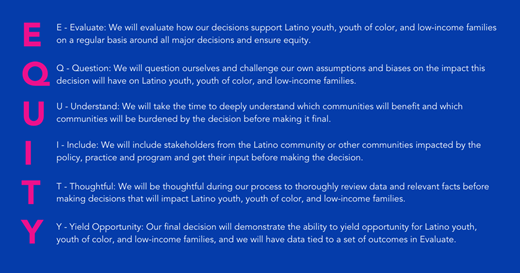
ALL in for Equity pledge graphic courtesy ALL in for Education
Parent Educator Academy is a new innovative workforce development strategy to support parents and educators with distance learning.
Adelante Fellowship will focus on exposing emerging leaders in our communities to what it means to be an advocate, how policies are formed and how the education system works.
Lastly, LISTO will work with Latino leaders that are ready to serve on local and state education and organization governing boards.
“We believe these programs will help address these gaps in our education system while helping increase student outcomes,” Parra said.
Why one district is developing an equity plan
Litchfield Elementary School District’s Governing Board, school district leaders and their diversity committee made up of teachers, staff, administrators, parents and a board member analyzed their student data and are in the process of developing an equity plan now.
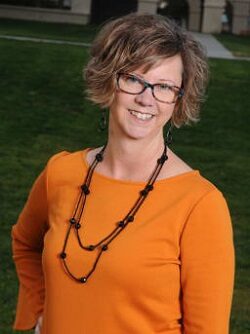 Supt. Jodi Gunning
Supt. Jodi Gunning
“As a public school district, we are mandated by federal funding to examine achievement and discipline data for our students,” said Supt. Jodi Gunning. “In doing so last year, we found some areas for improvement.”
“We have begun studying opportunities to 1) enhance staff recruitment practices to attract a robust pool of candidates and 2) provide teachers and staff with the tools necessary to encourage positive student behavior,” Supt. Gunning said.
Litchfield Elementary School District Governing Board President Danielle Clymer said, “Working to create and maintain an equitable environment for our students and staff is crucial for our district’s success. Providing opportunities for all students to reach their potential is paramount and I believe will result in increased student achievement in our schools.”
“Recruiting and retaining staff members is one of the most difficult jobs the district has,” Clymer said. “Actively recruiting a robust pool of employees inspires confidence from our community members who can see themselves represented in our organization and guarantees we will have access to the best educational professionals in the field.”
Keeping the community informed and involved in the process of developing the equity plan has been a priority throughout this process and will continue to be, Supt. Gunning said.
“Our Governing Board members are paying close attention to this important issue and have been thoroughly accessible to the community,” Supt. Gunning said.
“I am conducting weekly Community Chats with our staff, families, and community members to answer questions and get feedback about how to move forward,” Supt. Gunning said. “We often receive notes and calls of support from families who are proud and grateful to see Litchfield prioritize the success of all students.”
Litchfield Elementary School District has been providing quality education for more than 100 years, Clymer said.
“I’m proud to help this stellar organization maintain its excellence and even improve along the way. We are working very hard to do right by all students,” Clymer said.
“We are just getting off the ground with this work and learning as we go,” Supt. Gunning said. “Our commitment is focused on academic excellence, well-being, and preparedness for all students. Our highly engaged community is helping us get better every day.”

Social Emotional Learning Week at Florence Unified School District
How a school’s & town’s equity plans work together
Florence Unified School District employs two major initiatives based on practices designed to create more equitable disciplinary outcomes, Johnson said.
The first is Positive Behavior Interventions and Supports (PBIS), which is designed to enhance the culture on campus by creating systems that reduce overall discipline and teach pro-social behaviors through positive reinforcement.
The second is incorporating Social Emotional Learning (SEL). Teaching about tolerance, respect, understanding, acceptance, and inclusivity is embedded within the work of SEL.
“This work is central to ensuring that the district builds capacity in teachers to create classroom cultures that reduce the disparity in discipline by limiting the use of exclusionary practices by proactively teaching these important skills,” Johnson said.
“Our work on equity is embedded within our work on social emotional learning,” Johnson said. “Recently, FUSD celebrated Social Emotional Learning Week using the opportunity to teach about such things like inclusivity, diversity, and identity. This was as great example of how FUSD prioritizes equity as a necessary and important part of every aspect of responsibility as educators.”
In addition, the Town of Florence is seeking to be an Autism certified community.
“Together the town and the school district are working towards a more inclusive environment,” Johnson said.

Governing Board Member Roger Biede visited schools and engaged with students during Social Emotional Learning week. Photo courtesy Florence Unified School District
“As public schools it is our mission to ensure every student can achieve success. In order to fulfill this mandate, we must evaluate, plan for, and enact, plans that reduce the inequities in student outcomes and allocate resources so that every child is provided what they need,” Johnson said.
“This also includes climate, which often refers to how students feel connected to their school. Are there trusted adults on campus? Does every student have people who understand them? Is the school a welcoming place where they feel safe and able to learn?” Johnson said.
Part of this welcoming culture includes having a diverse and representative workforce, Johnson said.
“It is always a goal to have a highly qualified group of teachers that are representative of the community in which they work. We know that it is important not only so that students have individuals who look like them, but so that they have role models that ensure that students see others who are successful,” Johnson said. “Both staff and students thrive when there is diversity of experience, background and culture and creates a richness that benefits the entire community.”
“When families see that the district is working to create such environments, they themselves feel heard and supported. Public schools are of the community while also being there to serve the community; therefore, it is critical that families are included in the equity process, Johnson said.












